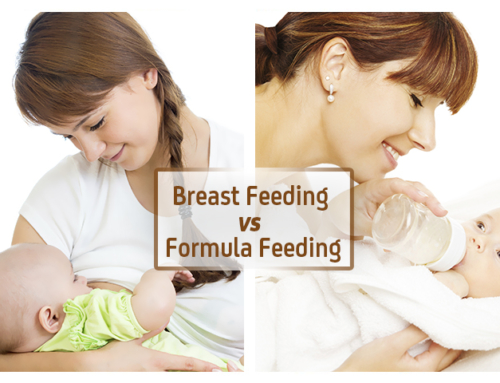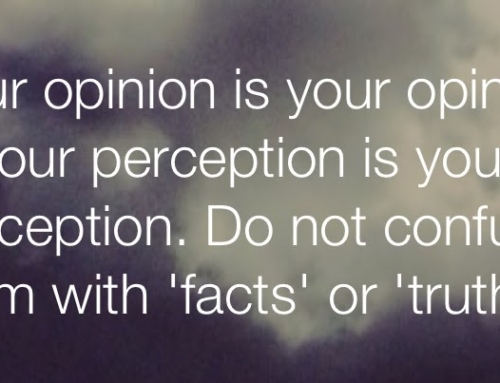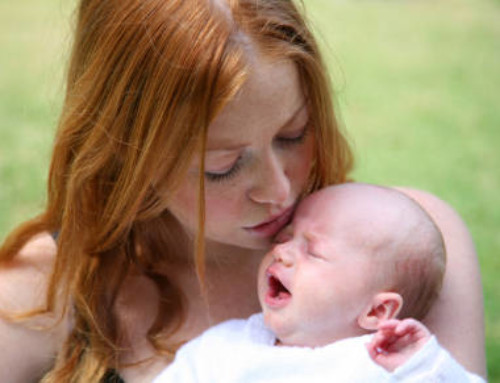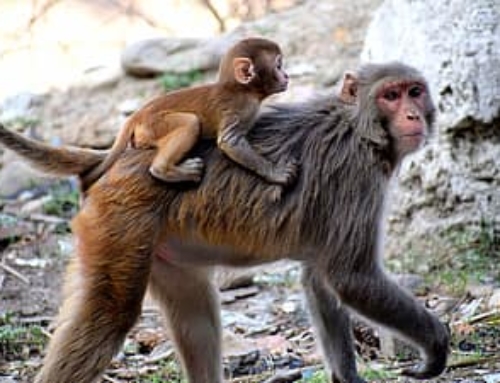By Tracy G. Cassels
Before everyone jumps down my throat and starts screaming that this is antithetical to gentle or natural parenting, please hear me out. I hope to speak here about behaviours we do that imply that our children are our equals and I am going to hopefully make a case that these behaviours are actually detrimental to our children and our bond with our children. So while you may want to view your child as an equal with all that entails, I’m hoping you’ll think a little more and see it’s not all bad to view your child as someone who is not your equal. That in fact, that is the point of parenting.
What is Equality?
This is central to the question at hand. And something that has lost much of its meaning due to misuse over the years. Equality is being equal, being the same. If we treat children equally, we treat them the same. The same as what though? As each other? As adults? Unfortunately, the latter answer seems to be one that comes to mind when looking at some parenting practices. And yet, if our children were born as fully competent adults (mentally), they wouldn’t need parents to help keep them safe, help them learn and help them navigate this world until they are our equals and ready to take it on themselves.
Equality Ignores the Extra Needs of Our Youngest
Starting at birth or shortly thereafter, parents start to display certain behaviours that suggest they want to view their babies as equals, even though they certainly don’t say it out loud or possibly even realize they are acting this way. Most prominently, parents seem to want their children to show physiological regulations like them. They want their babies to sleep through the night, to be able to entertain themselves without being held or touched, or to calm themselves down when they are upset. When a parent complains that their baby isn’t sleeping through the night at 3 months, it comes from an expectation that they can think of infant sleep as being like adult sleep with (hopefully) minimal night wakings. Or when a parent gets upset that their baby wants to be held by them all the time, the underlying assumption is that the baby should be fine without that kind of special consideration. Like an adult. Yet babies are simply not capable of doing this.
Is it our job to help our children learn to sleep? To occupy themselves? To self-regulate their own emotions? Absolutely. But the problem comes when we decide to teach them in ways that also ignore their developmental status in favour of a more adult-assumed status. A child does not learn to sleep well by being ignored when s/he wakes up hungry, cold, or in pain because a child cannot solve those problems by his or herself unlike many adults. A child does not learn to regulate his or her emotions when being left to cry it out because a child has no basis of regulation except via the caregiver.
Oddly when people turn to these harsher methods with young children, it’s almost as if they are viewing the child as in charge and they are lashing out against that. Parents put adult expectations on children then when they can’t meet them, they get frustrated and decided to tackle the issue from a place of absolute authority. I suppose if we start from a place assuming equality and that doesn’t work, where else is there to go?
Equality Can Lead to Permissive Parenting
This is where many parents in the gentler communities sometimes see things differently. In a quest to respect our children and our belief that they are “equal” to us, we end up allowing a lot that may not be good for our kids, our relationship with them, or their ability to socialize in this world. Unfortunately, some people think that when we speak of boundaries set or discipline for a child, it is appropriate to ask if we would do the same to our partner, friend, or colleague. This presupposes that our children have the cognitive capacity and socio-cultural knowledge that these other adults have.
They don’t.
And it is our job as parents to teach our children about their culture and to provide them with the information they need about how to function in our society. About how to socialize with others. About how to function in a group, whether it be home, school, with friends, etc. About what is healthy and what isn’t. And so on. The basis of this teaching is that when it comes to this knowledge, we are not equals.
For example, if I have a toddler who only wants to eat sugar and cake, I could let him under the premise that he an equal and capable of making this decision himself. If my husband wanted to do this, I would speak to him about it, but certainly wouldn’t force him not to, so why not the child? Well, the child doesn’t have the information I have about food choices and the consequences of these choices and also don’t have the cognitive capacity to learn it all quickly or even to necessarily override the urge for sugar when it hits. As such, it is my duty as a parent to take this into consideration and offer healthy alternatives that I’m comfortable with and explain to my child what it means to eat healthy.
Another example from my own home (as we don’t have food issues) is when I caught my daughter playing with water in our living room, getting it everywhere. She’s growing and getting more able to get things she wants on her own, including finding half-empty cups and bottles of water to play with. Now, if it were my husband, I would let him go to town and then let him deal with the consequences of cleaning and then replacing the laminate flooring if it started to bubble up after the water was on it. But my daughter isn’t going to do either of these things (although she would certainly try to clean to her fullest, but I would have to step in to make sure it was as dry as could be). So I said no. I said we could not play with water in the living room, but that if she wants to play with water we could either have a bath or go to the sink in the kitchen. I explained why and she chose to go to the tub after helping me clean, but there was no question that she was my “equal” in terms of what she got to choose to do.
I have also had people question taking away a hard toy that my child is using as a weapon, asking if I would do the same with adults. First off, I absolutely would with an adult or might even use harsher force with an adult, but second, my daughter has to learn that hurting people is unacceptable. And not just focusing on her emotional state, but the emotional state of others. This is part of socialization. I also have a job to keep people safe, and that includes those my daughter may be lashing out against.
But like I said about how we treat our youngest, we must also start in this place of inequality by being respectful and cognizant of what our children are capable of. When we aim to teach them, we have to know what we are trying to teach and what they can learn at that moment. Thus, how we interact with them will naturally shift as they age and grow and learn. Sadly this is where some mainstream parenting – and especially the backlash to natural or gentle parenting – gets it wrong. They end up behaving in a way that does not respect the child at all, but comes only from a place of authority.
Being in Charge or Holding the Power
The overarching problem with viewing our children as equals is that it tries to negate that we do hold power over our children. For some, seeing our children as equals allows us to put unrealistic expectations on them, expectations they can’t possibly live up to, and then be upset when they fail to reach them and then take over in an authoritarian manner. In short, it disrespects them. For others, seeing our children as equals allows us to avoid some of the negatives of holding power over someone else, like having to set boundaries and make sure we are responsible for our children’s cultural and social learning. For many of these parents, it’s fear of not showing our child enough respect that drives them down this path.
What’s key, though, is that coming from a place of power and coming from a place of respect do not have to be antithetical to each other. They can and should complement each other if we’re to be effective parents. But to deny that we are indeed in charge and hold power over our children is a grave mistake that leads us to unfortunate scenarios with our children.
In the case of our youngest children, when we start from a view of equality that leads to unrealistic expectations, we cannot possibly be the parents our children need us to be in order to learn about the world in a healthy manner. We can’t give them the extra consideration they need to grow at their own pace. And when we need to intervene (because sometimes we do), if we approach from a place of respectful power, we can start to look for ways that respects the child’s limitations. We don’t leave a child to cry, but instead look to methods that considers where the child is to guide and teach him.
In the case of our oldest children, when we view them as equals we miss out on all the teaching that needs to happen for them. Our children also miss out on the security that boundaries provides for them. Sometimes we find ourselves feeling like no longer as we even equals, but that the child is in fact “in charge”. This is worrisome because it often ends with the parent taking draconian measures (as with our youngest) in an effort to curb this and reclaim power that was always there, but not respected by the parent. And once again, the children lose out when a parent has to go down that road.
Children are not our equals. We have to respect that fact and the power we thus hold over them when we think of parenting. For if we don’t, we run the risk of truly harming them.






Wow! What an excellent article. You’ve struck an ideological balance between an authoritarian parenting style, and “natural” parenting – and discovered the basis for a more realistic and sensible style that works for and benefits both kids and parents. I’m definitely going to read this article again and again.
In our equality and diversity training we were taught equal means “equal opportunities” in that whatever a person may lack is compensated for. In that way children are our equals. However asking them to behave like an adult is like asking a person on crutches to run a marathon, it’s not developmentally appropriate yet.
I like this article, as usual, you are awesome!
“Equality is being equal, being the same’. No it’s not. As mentioned above, it’s about having the same opportunities and also being respected for who you are. Whether that is a child or an adult.
“My daughter has to learn that hurting people is unacceptable. And not just focusing on her emotional state, but the emotional state of others.” But by intervening and taking the hard toy away from her, you are shifting her attention away from the person who is getting hit, to you and your opinion, and to herself and how sorry she feels for herself for the lost toy. She WILL learn that hurting is unacceptable, by the reaction of the person she is hitting. Instead of looking to you as the parent to step in, that person has to express directly to the child his or her boundaries being crossed by the hitting. Only when a weaker party is involved (a younger child, a pet) do you step in.
My kids ARE my equals, as humans, as individuals. Of course they’re not ‘the same’ as me. No one is the same. But they did not ask to be my children. The least I can do is respect their needs en opinions, as I expect them to respect mine. Check http://www.alfiekohn.org.
But the definition of it is actually not – equality is equal, the same. Equity is what we are looking for. However, the toy was aimed at me in these instances so yes, I’m going to take it away. I don’t do it when it’s peers, leaving it up to them to work out. I think we’re very much on the same page, but I don’t go as far as Kohn because I see everyday the ways you can help guide behaviour with our children by treating them equitably, not equally.
Actually the first definition of equal is “as great as; the same as (often followed by to or with)”. So the opposite of not equal would be “less than”. NO children are not less human, nor are their feelings, wants, desires, or needs less important. I would say yes my child is at least as “great as me” I hope one day he is better than me. When the constitution says we are all “created equal” it does not mean that we are all created the same, we seem to know this intrinsically. Not all people can run 4.2 forty or be a concert pianist, but we are created equally in that we are all humans and we all have rights, feelings, and emotions. I think your article should be titled “Children are not Adults” which obviously is true, but probably less of a headline grabber. I don’t treat my child as an adult, but I treat him with respect and as an equal human. Just like my boss at work has authority over me, he does not view me as inferior or not equal, he can and does still ask me to do things. I gladly do them because he has earned my respect. When you view someone as inferior then you will never have their respect and you will have to parent out of a position of fear.
But who says it has to be the opposite? Just because you don’t view someone as beautiful doesn’t inherently mean you believe they are ugly. Starting from a point of equity is what I would propose here.
I often argue that children are our equals. I intentionally use the word equal and give the example of treating my son the way I want to be treated for two main reasons: 1) most people don’t understand what equity is and 2) to emphasize that children are deserving of the same basic human rights as adults.
Think about how many people believe that children ought to be hit in order to teach a lesson. Or in less extreme instances, how many people parent as though their children don’t have valid feelings or opinions.
Adults and children are both human with equally valid feelings and opinions, therefore we are equal.
I do agree that being equal does not necessarily mean that I want my child to be treated in the exact same way as an adult without considering his developmental needs. So yes, equity might be a more accurate term. But isn’t that just matter of semantics?
I also don’t understand the permissive parenting piece. I’ve heard this term many times, but I’ve yet to see it in action. What does permissive parenting look like? What exactly are these parents allowing to happen that shouldn’t happen? And by who’s standards? What one person views as permissive doesn’t make it a universal truth. There are probably people who consider you permissive even though you clearly set limits. Maybe I’m misunderstanding what it’s all about, but I honestly think permissive parenting is a b.s. idea thought up as a means to justify authoritarian parenting styles and ultimately perpetuate ageism. Kind of like the whole “kids these days are disrespectful” argument.
I did appreciate this post, though it would have resonated with me more had you focused on explaining why we should strive for equity over equality. I think arguing that children are not our equals can be dangerous. I worry that it reinforces an idea that is already pervasive in society – there is a larger population of adults who don’t view children as equals than parents who treat their children as equals to the point of it being detrimental.
I see where you’re coming from but I still find equality to have such added meaning that I much prefer equity when thinking of a family. It’s hard to choose who to focus on when forced to if everyone is “equal”, but equity speaks to the nuances that are ever-fluid and ever-constant in a household 🙂 I certainly would NOT want it used to argue for authoritarian parenting, but I also don’t like hiding information or ideas out of fear 😉
Re permissive parenting – it’s very real. Often it borders on neglect, but you’re talking about the parents who let their kids set what they want for dinner (not within healthy choices), choose whether or not to do homework, go to school, etc. I find it looks like parenting where parents feel they have no voice and that’s unhealthy for everyone. And children really do suffer from it. Of course, we’re not talking about the individual types of decisions I think you have in mind, but an overall style of parenting that leaves EVERYTHING up to the child AND expects the child to do something without any teaching or guidance. Does that help?
[…] not a lone voice. Evolutionary parental counselor, Tracy G. Cassel argues that children are not our equals, pointing out,“if our children were born as fully competent adults (mentally), they wouldn’t […]
According to the libertarian ethicist, all human beings are equal. Every person, regardless of their age is entitled to exactly the same treatment from everyone around them. I believe that authority is given to parents over their children, yes, but when it comes to differences in opinion, a parent has no right to force an opinion on their child.
I think it would behoove anyone considering to become a parent to read and contemplate ideas like this BEFORE embarking on their familial journey. Wonderful and thoughtful piece.
As an anarchist, I strongly disagree with that statement ! Children should be treated equal to their parents the same way wives should be treated equal as their husbands